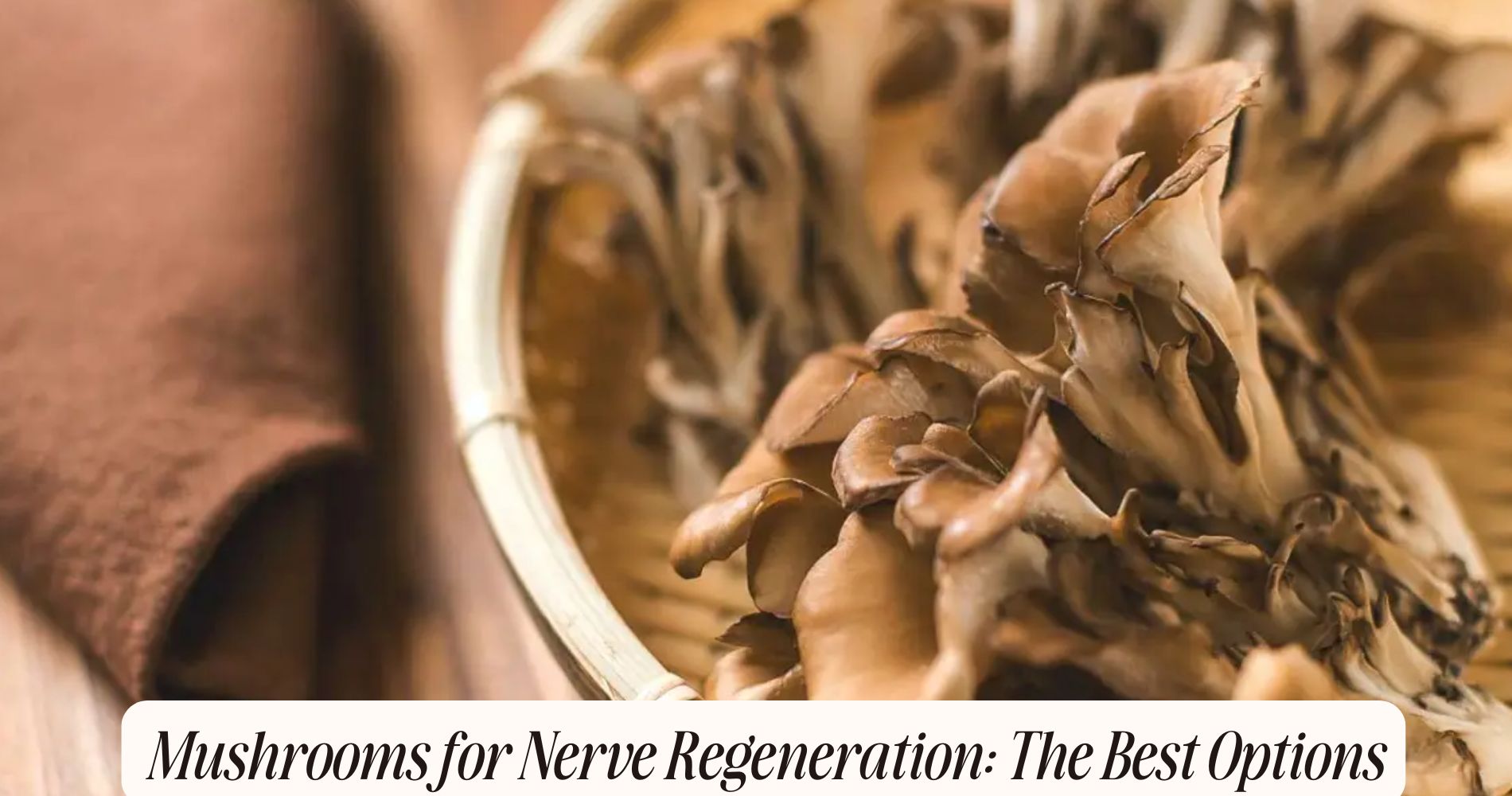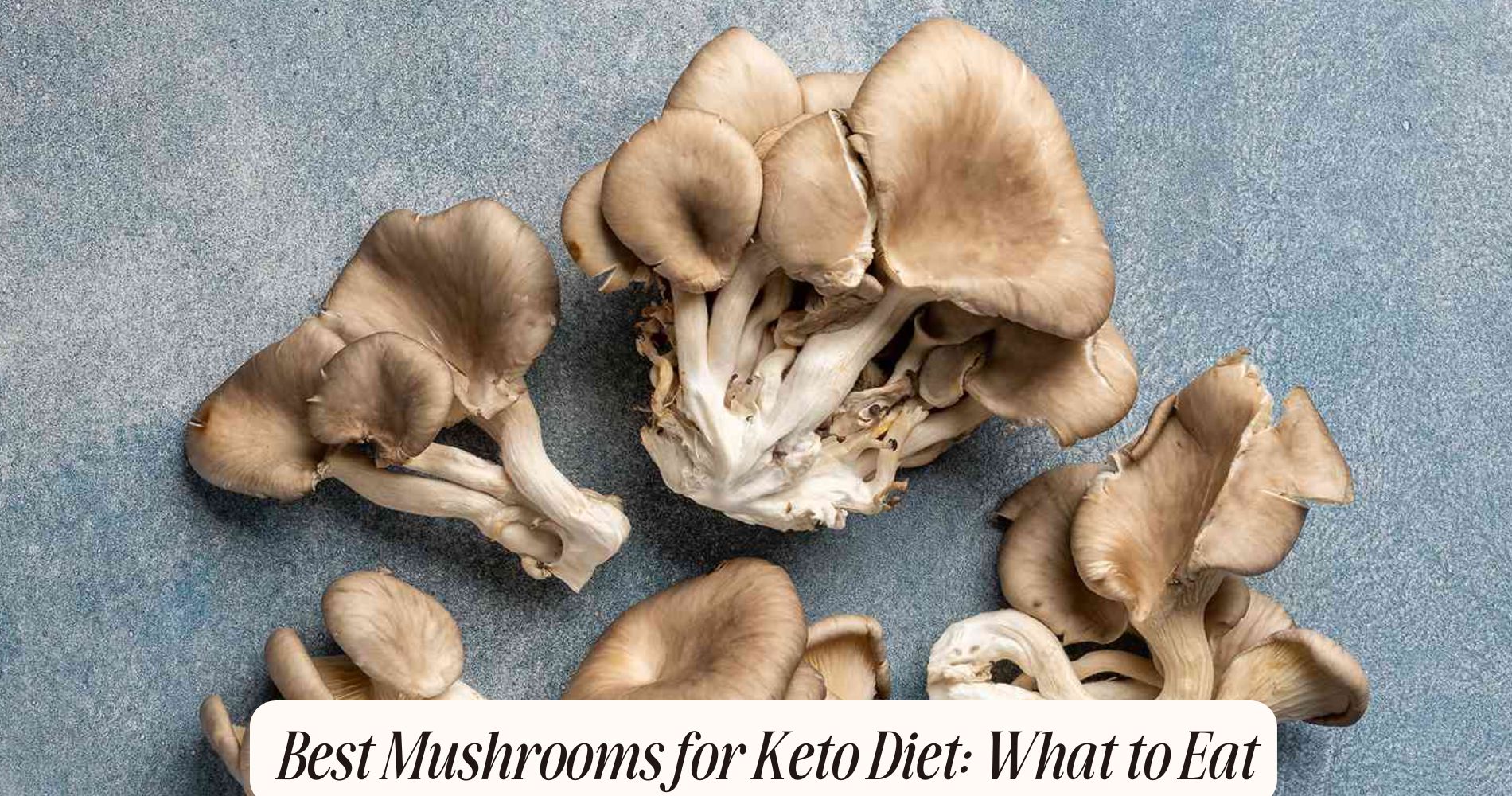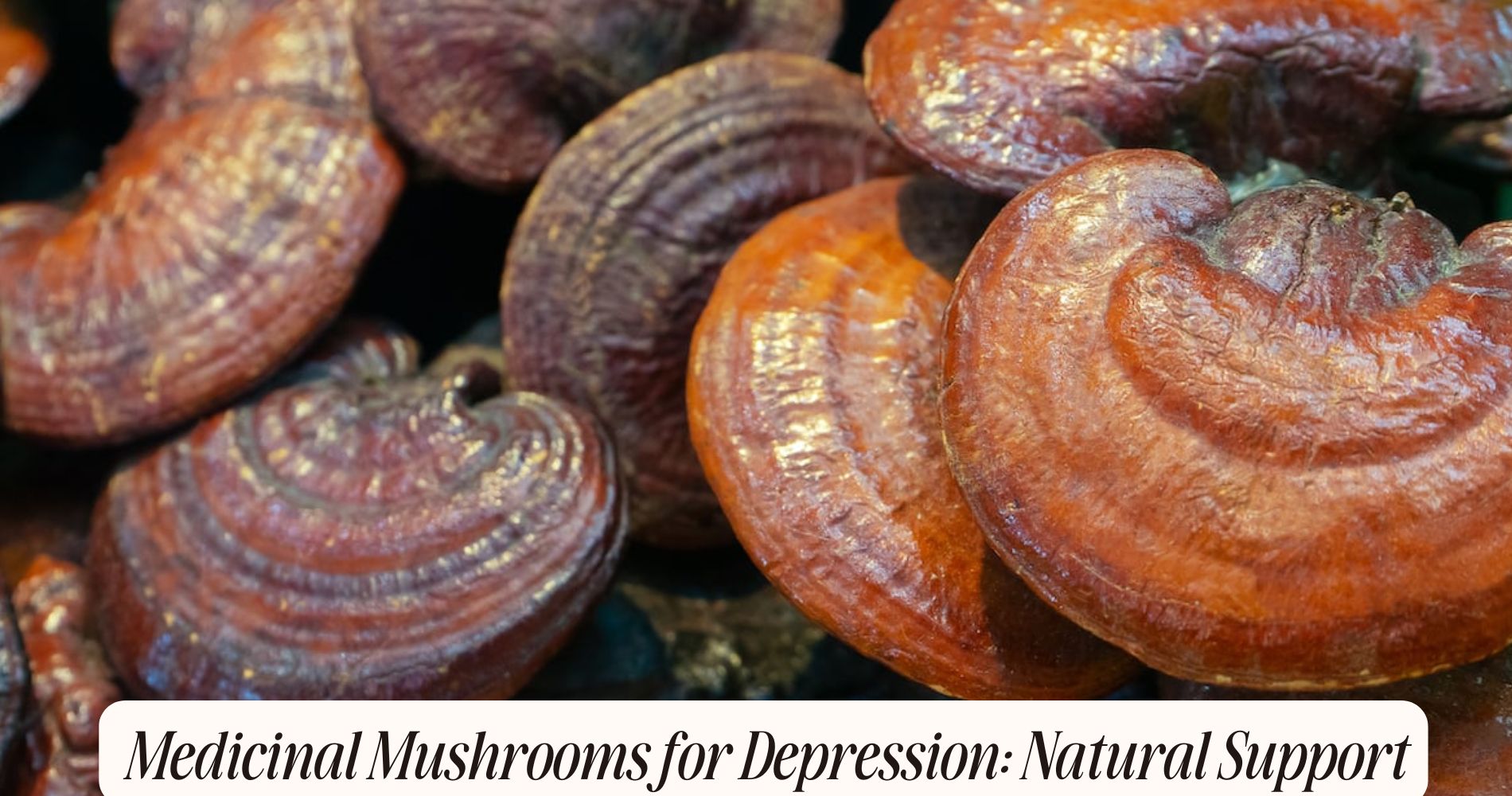
Mushrooms for Nerve Regeneration: The Best Options
Understanding Nerve Regeneration
Nerve regeneration is a complex process that involves the repair and regrowth of damaged nerve fibers, vital for restoring functionality after injury. To understand this process, you need to grasp the fundamentals of nerve anatomy. Nerves consist of nerve fibers (axons) surrounded by a protective sheath, which plays an important role in their healing process.
When an injury occurs, the body initiates a series of biochemical events. First, the damaged section of the axon undergoes degeneration, a process known as Wallerian degeneration. This is where the distal portion of the axon breaks down, and debris is cleared out by immune cells.
Following this, Schwann cells, which are essential for peripheral nerve repair, proliferate and form a conducive environment for regrowth. They create a framework that guides the regrowth of axons toward their target tissues.
The healing process can be influenced by various factors, including the type of injury, the age of the individual, and overall health. Understanding these elements is vital for developing effective strategies to enhance nerve regeneration, ultimately improving recovery outcomes after nerve injuries.
Top Mushrooms for Healing
Numerous studies highlight the potential of certain mushrooms in promoting healing and supporting nerve regeneration. Among the various medicinal mushrooms, Lion's Mane (Hericium erinaceus) stands out due to its neuroprotective properties. This mushroom variety contains compounds that stimulate nerve growth factor (NGF) synthesis, essential for nerve cell survival and regeneration.

Another significant option is Reishi (Ganoderma lucidum), known for its anti-inflammatory and antioxidant effects. These properties can help reduce oxidative stress on nerve cells, thereby facilitating a more favorable environment for healing.
In addition, Turkey Tail (Trametes versicolor) is recognized for its ability to enhance immune function, which can indirectly support nerve regeneration by promoting overall health.
Shiitake (Lentinula edodes) is another remarkable medicinal mushroom. Rich in polysaccharides, it can bolster the immune system and provide essential nutrients that aid in recovery processes.
Moreover, Chaga (Inonotus obliquus) has garnered attention for its anti-inflammatory properties, which may assist in minimizing nerve damage.
Incorporating these mushroom varieties into your diet could offer substantial benefits for nerve healing and regeneration.
Active Compounds in Mushrooms
When exploring the active compounds in mushrooms, you'll find a diverse array of bioactive substances that contribute to their medicinal properties. These mushroom compounds include polysaccharides, triterpenoids, and phenolic acids, each playing a unique role in promoting health and potentially aiding in nerve regeneration.
Polysaccharides, particularly beta-glucans, are well-studied for their immunomodulatory effects. They help stimulate the immune system, which can be vital in the healing process after nerve injuries.
Triterpenoids, found in mushrooms like Reishi, exhibit anti-inflammatory and antioxidant properties, protecting nerve cells from damage and promoting recovery.

Additionally, phenolic acids possess antioxidant capabilities, neutralizing harmful free radicals that can impede nerve regeneration. Studies suggest that these compounds may enhance neurogenesis, the process of new nerve cell formation, thereby improving functional recovery.
Mushroom compounds like ergothioneine and glutathione also contribute to cellular protection, further supporting nerve health.
Incorporating Mushrooms Into Your Diet
Incorporating mushrooms into your diet can be a practical way to harness their beneficial compounds for nerve health and overall wellness. Research highlights that mushrooms like lion's mane and reishi contain bioactive substances that support nerve regeneration and cognitive function.
To reap these benefits, try integrating various mushroom recipes into your meals. For instance, you can sauté shiitake mushrooms with garlic and olive oil for a nutritious side dish or blend lion's mane into your morning smoothie for added nutrients without altering the taste.

When selecting mushrooms, opt for organic varieties when possible to avoid pesticides that might negate their health benefits. Aiming for variety is also essential; different types of mushrooms provide unique compounds that contribute to nerve health.
As a dietary tip, consider pairing mushrooms with vitamin D-rich foods, like fatty fish or fortified dairy, to enhance absorption of their nutrients.
Additionally, using mushrooms in soups, stir-fries, or pasta dishes can increase your overall intake, making it easier to include these powerful fungi in your daily diet. By making these adjustments, you can effectively support your nerve health through delicious meals.
Additional Benefits of Mushrooms
Mushrooms offer a range of additional benefits that extend beyond nerve regeneration and cognitive function. One of the most significant advantages is their ability to provide immune support. For instance, varieties like shiitake and maitake are rich in beta-glucans, which have been shown to enhance immune response by activating immune cells. This can help your body fend off infections and illnesses more effectively.

Moreover, mushrooms contribute to cognitive enhancement. Varieties such as lion's mane contain compounds that stimulate the production of nerve growth factor (NGF), which is essential for the growth and maintenance of neurons. Studies indicate that regular consumption of lion's mane can improve memory and cognitive function, making it a valuable addition to your diet if you're looking to boost brain health.
In addition to these benefits, mushrooms are low in calories and high in nutrients, providing essential vitamins and minerals like B vitamins, selenium, and potassium.
Incorporating mushrooms into your meals not only supports nerve regeneration but also enhances overall well-being. With their multifaceted benefits, mushrooms are a powerful ally for both your immune system and cognitive performance.
Support Nerve Health with the Ultimate Wellness Bundle
For those looking to enhance nerve regeneration and overall well-being, the Ultimate Wellness Bundle from Well Gummies is the perfect addition to your routine. This gum chew product includes All-in-One Mushroom Gummies for daily immune and brain support, and Lion's Mane Focus and Energy Gummies for an extra boost when needed. Packed with 10 functional mushrooms, including those known for nerve health, these vegan gummies deliver calmer energy, sharper focus, and essential immune support. With a wild berry flavor that tastes like candy, enjoy the benefits without jitters or crash—just balanced energy and clarity all day long!
Frequently Asked Questions
Can Mushrooms Interact With Prescription Medications for Nerve Issues?
Yes, mushroom compounds can interact with prescription medications affecting nerve health. It's essential to consult your healthcare provider before combining them, as these interactions may alter drug effectiveness or increase side effects, impacting your overall treatment.
Are There Any Side Effects From Consuming Nerve-Regenerating Mushrooms?
Consuming nerve-regenerating mushrooms can lead to side effects, varying by mushroom types. Safety concerns include potential allergic reactions or gastrointestinal issues. Always consult a healthcare professional before incorporating them into your regimen for nerve health.
How Long Does It Take to See Results From Mushroom Consumption?
You'll typically notice improvements in nerve function within four to twelve weeks, depending on the mushroom varieties consumed. The regeneration timeline varies, but consistent consumption can greatly enhance recovery and overall nerve health over time.
Is There a Recommended Dosage for Mushrooms Targeting Nerve Regeneration?
There're no universal dosage guidelines for mushroom varieties targeting nerve regeneration. It's crucial to consult healthcare professionals for personalized recommendations, as factors like individual health, specific mushrooms, and desired effects greatly influence ideal dosage.
Can Mushrooms Be Used in Conjunction With Other Nerve Therapies?
Yes, mushrooms can enhance nerve healing when used alongside other therapies. Their mushroom synergy may improve overall effectiveness, providing additional support for regeneration. Always consult a healthcare professional to guarantee safe and effective combinations for your treatment plan.
Conclusion
Incorporating mushrooms into your diet can greatly support nerve regeneration due to their unique compounds and nutritional benefits. Varieties like Lion's Mane and Reishi stand out for their neuroprotective properties. By understanding how these mushrooms promote healing and enhancing your meals with them, you can harness their potential to aid recovery. As research continues to reveal their benefits, embracing mushrooms could be a strategic approach to enhancing your overall nerve health and well-being.




